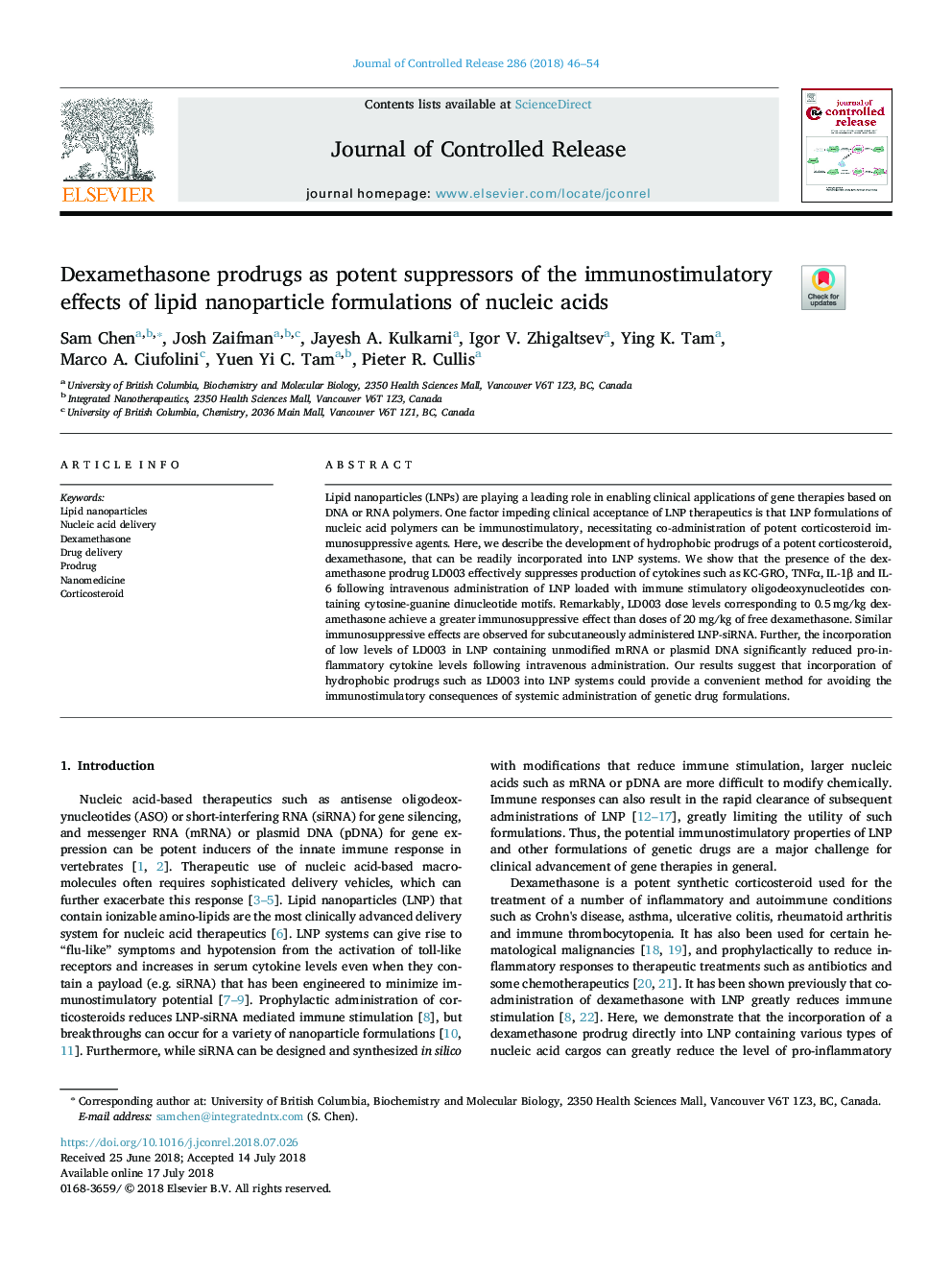| Article ID | Journal | Published Year | Pages | File Type |
|---|---|---|---|---|
| 7859134 | Journal of Controlled Release | 2018 | 9 Pages |
Abstract
Lipid nanoparticles (LNPs) are playing a leading role in enabling clinical applications of gene therapies based on DNA or RNA polymers. One factor impeding clinical acceptance of LNP therapeutics is that LNP formulations of nucleic acid polymers can be immunostimulatory, necessitating co-administration of potent corticosteroid immunosuppressive agents. Here, we describe the development of hydrophobic prodrugs of a potent corticosteroid, dexamethasone, that can be readily incorporated into LNP systems. We show that the presence of the dexamethasone prodrug LD003 effectively suppresses production of cytokines such as KC-GRO, TNFα, IL-1β and IL-6 following intravenous administration of LNP loaded with immune stimulatory oligodeoxynucleotides containing cytosine-guanine dinucleotide motifs. Remarkably, LD003 dose levels corresponding to 0.5â¯mg/kg dexamethasone achieve a greater immunosuppressive effect than doses of 20â¯mg/kg of free dexamethasone. Similar immunosuppressive effects are observed for subcutaneously administered LNP-siRNA. Further, the incorporation of low levels of LD003 in LNP containing unmodified mRNA or plasmid DNA significantly reduced pro-inflammatory cytokine levels following intravenous administration. Our results suggest that incorporation of hydrophobic prodrugs such as LD003 into LNP systems could provide a convenient method for avoiding the immunostimulatory consequences of systemic administration of genetic drug formulations.
Keywords
Related Topics
Physical Sciences and Engineering
Materials Science
Biomaterials
Authors
Sam Chen, Josh Zaifman, Jayesh A. Kulkarni, Igor V. Zhigaltsev, Ying K. Tam, Marco A. Ciufolini, Yuen Yi C. Tam, Pieter R. Cullis,
